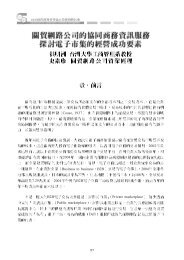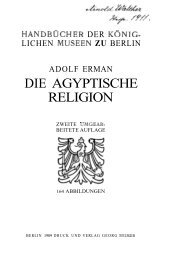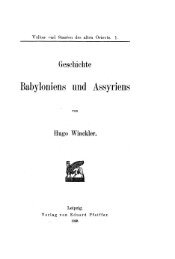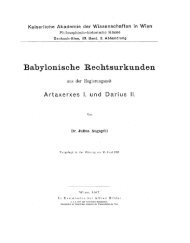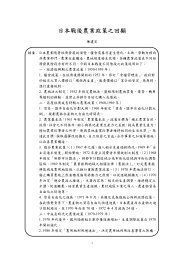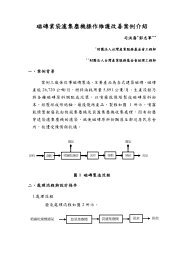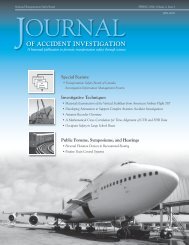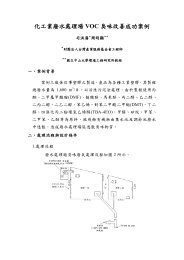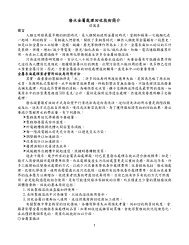WEEE/RoHS Workshop
WEEE/RoHS Workshop
WEEE/RoHS Workshop
Create successful ePaper yourself
Turn your PDF publications into a flip-book with our unique Google optimized e-Paper software.
<strong>WEEE</strong>/<strong>RoHS</strong> <strong>Workshop</strong><br />
Taipeh, August 31, 2005<br />
Kris Pollet<br />
Director EU Law<br />
& Policy<br />
62 rue de la loi<br />
1040 Brussels<br />
T: 32 2 219 16 20<br />
F: 32 2 219 16 26
Legal Basis: Back to basics<br />
Session I
Directive vs. Regulation<br />
« Directive »:<br />
“A Directive shall be binding, as to the result to be achieved, upon each<br />
Member State to which it is addressed, but shall leave to the national<br />
authorities the choice of form and methods”<br />
“ Regulation ”:<br />
“A Regulation shall have general application. It shall be binding in its entirety<br />
and directly applicable in all Member States.”<br />
Article 249 EC Treaty<br />
WHITE & CASE LLP
Directive vs. Regulation<br />
A Directive needs to be transposed into national law.<br />
A Directive leaves Member States margin for maneuver on how to achieve<br />
a set goal.<br />
A Regulation is directly applicable.<br />
Only under very specific circumstances can a citizen derive rights from a<br />
Directive which has not (yet) been transposed into national law.<br />
A Regulation is used for highly technical issues where differences are not<br />
desirable (eg. REACH proposal).<br />
A Directive leaves room for national political choices (Treaty principle of<br />
subsidiarity).<br />
WHITE & CASE LLP
The <strong>WEEE</strong> & <strong>RoHS</strong> Directives<br />
Stakeholders initially asked for a <strong>WEEE</strong>/<strong>RoHS</strong> Regulation, in order to<br />
ensure identical implementation in all Member States…<br />
Initially there was only one proposal for a unified electronic waste law.<br />
The text was split up into a <strong>WEEE</strong> Directive and a <strong>RoHS</strong> Directive.<br />
Why?<br />
Political choice for a different legal basis!<br />
(even the current EuP proposal for eco-design was initially supposed to be<br />
part of the unified electronic waste law)<br />
WHITE & CASE LLP
Legal Basis<br />
<strong>WEEE</strong> Directive:<br />
Article 175 EC Treaty – Environmental Protection<br />
It shall « not prevent any Member State from maintaining or introducing more<br />
stringent protective measures » (Art. 176)<br />
<strong>RoHS</strong> Directive:<br />
Article 95 EC Treaty – Harmonisation of EU law / Single Market<br />
National derogations are not possible (except under very strict circumstances)<br />
Therefore, a Member State cannot normally add a 7th or 8th hazardous substance<br />
to the 6 banned under <strong>RoHS</strong><br />
WHITE & CASE LLP
Consequences<br />
A patchwork of different substance bans in different Member States was<br />
considered to be very damaging – would have destroyed EU Single Market<br />
Some Member States already had electronic waste legislation – which differed<br />
in various respects<br />
<strong>WEEE</strong> Art 175 was meant to give them the option to stick to some of their<br />
national choices<br />
Since <strong>WEEE</strong> primarily determines the scope of both <strong>WEEE</strong> and <strong>RoHS</strong>, it is<br />
possible that the scope of products covered by <strong>WEEE</strong>/<strong>RoHS</strong> differs nationally.<br />
Other differences?<br />
E.g. : “Producers to provide at least for collection of <strong>WEEE</strong> deposited at<br />
collection facilities” (Art 8.1)<br />
WHITE & CASE LLP
Implementing rules<br />
⇒ Problem: many detailed/technical issues have NOT been dealt with or<br />
regulated in the Directives.<br />
⇒ Solution: common EU mechanism to deal with technical implementing rules,<br />
and ‘adaptation to scientific and technological progress’ = « comitology ».<br />
European Parliament, as legislator, does not normally want to deal with<br />
technical details – lack of expertise<br />
These ‘implementing powers’ are granted to the European Commission,<br />
which operates the « comitology » system.<br />
Art 14 <strong>WEEE</strong>, Art 7 <strong>RoHS</strong> = comitology or Technical Adaptation Committee<br />
(TAC).<br />
WHITE & CASE LLP
Technical Adaptation Committee<br />
Chaired by European Commission<br />
Made up of representatives of the 25 Member States<br />
National officials responsible for electronic waste policy<br />
Only European Commission can table a proposal<br />
No real involvement of European Parliament<br />
If majority of TAC agrees, European Commission will adopt proposal<br />
TAC cannot amend proposals<br />
WHITE & CASE LLP
Technical Adaptation Committee<br />
⇒TAC has been focal point of political discussions on <strong>WEEE</strong> and <strong>RoHS</strong><br />
problems for past 2 ½ years.<br />
Decision of 18 August 2005 on Maximum Concentration Values<br />
Draft Decision to exempt Deca BDE brominated flame retardant from <strong>RoHS</strong><br />
ban<br />
Draft Decision to exempt certain applications from <strong>RoHS</strong> bans (e.g. lead<br />
and cadmium in optical and filter glass; cadmium and its compounds in<br />
electrical contacts)<br />
Guidance document (called “Frequently Asked Questions”)<br />
WHITE & CASE LLP
Technical Adaptation Committee<br />
⇒ Industry is NOT normally present during TAC meetings<br />
⇒ Not straightforward to lobby TAC members<br />
⇒ Commission / TAC turf battle with European Parliament<br />
⇒ Commission / TAC can only legislate if explicitly foreseen in Directive<br />
⇒ Guidance document, including on scope/grey products issues, is therefore<br />
non-binding<br />
WHITE & CASE LLP
Technical Adaptation Committee<br />
Upcoming proposals / Decisions:<br />
amend/simplify <strong>WEEE</strong> Annex II selective treatment requirements;<br />
request to exempt 19 applications from <strong>RoHS</strong> ban;<br />
review of granted exemptions after 4 years;<br />
how to calculate recovery & recycling targets.<br />
TAC can NOT expand <strong>RoHS</strong> 6 substances ban – considered too politically<br />
sensitive!<br />
WHITE & CASE LLP



